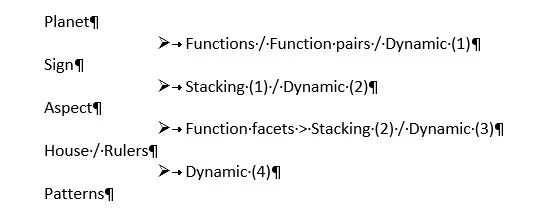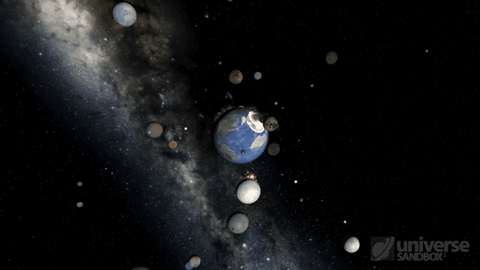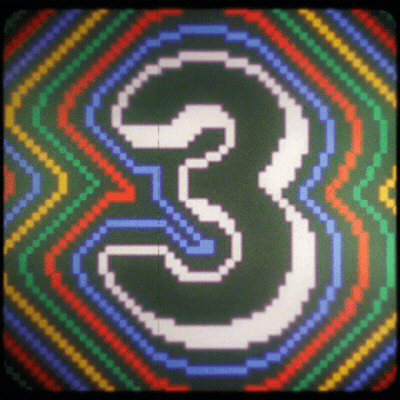You are using an out of date browser. It may not display this or other websites correctly.
You should upgrade or use an alternative browser.
You should upgrade or use an alternative browser.
More options
Who Replied?jkxx
*hv
- MBTI
- INFJ
- Enneagram
- 1w2
@Sandie33, that is beyond anything I have thought of before on the function stacking.
However, I like to think of astro combinations as a probabilistic combination equation (*it is really not, Mercury and Venus are tied to the Sun, but let's pretend)
where with the 10+1 planets occupying any of the possible 360 degrees of the zodiac we end up with something like
360!
------
11!
which I believe is some astronomic number too big to even matter at this point. So yes, astrology has many more combinations but the magic of the MBTI is that Jung found a way to make the distinctions which matter count, in a way.
However, I like to think of astro combinations as a probabilistic combination equation (*it is really not, Mercury and Venus are tied to the Sun, but let's pretend)
where with the 10+1 planets occupying any of the possible 360 degrees of the zodiac we end up with something like
360!
------
11!
which I believe is some astronomic number too big to even matter at this point. So yes, astrology has many more combinations but the magic of the MBTI is that Jung found a way to make the distinctions which matter count, in a way.
jkxx
*hv
- MBTI
- INFJ
- Enneagram
- 1w2
There is also this - while I am relatively new to mapping MBTI functions to astrological patterns (being familiar with the latter, somewhat with the former, and not at all with the connection between the two until recently) pure MBTI typing videos are also useful here.
- MBTI
- INFJ
- Enneagram
- 954 so/sx

- MBTI
- INFJ
- Enneagram
- 954 so/sx
some astronomic number too big to even matter at this point
#AllNumbersMatter
jkxx
*hv
- MBTI
- INFJ
- Enneagram
- 1w2
#AllNumbersMatter
Base e then?
- MBTI
- INFJ
- Enneagram
- 954 so/sx
Ginny
Shrrg
- MBTI
- INFJ IEI
- Enneagram
- 1w2 sx/sp
Okay, I'm posting it here because it has been a topic discussed and already superficially put into practice: the possible correlations between astrology and MBTI.
What came to mind is a specific Moon-Neptune aspect, which I thought may make indications towards the position within the stack of specific judging functions (I'm tending toward only Feeling, but I haven't gone through all possibilities of placement) based on which aspect combines them. Say, for this example we'd say my Moon and Neptune placements an indicator for strong Fe and Fi in of itself (the moon placement alone also making implications towards N-functions), but the square as a hard aspect could indicate a tendency towards Fe, whereas a more harmonious aspect would probably indicate Fi.
All in all, I have a theory brewing, which I can hopefully expand on later if I believe it is logically practicable.
What came to mind is a specific Moon-Neptune aspect, which I thought may make indications towards the position within the stack of specific judging functions (I'm tending toward only Feeling, but I haven't gone through all possibilities of placement) based on which aspect combines them. Say, for this example we'd say my Moon and Neptune placements an indicator for strong Fe and Fi in of itself (the moon placement alone also making implications towards N-functions), but the square as a hard aspect could indicate a tendency towards Fe, whereas a more harmonious aspect would probably indicate Fi.
All in all, I have a theory brewing, which I can hopefully expand on later if I believe it is logically practicable.
jkxx
*hv
- MBTI
- INFJ
- Enneagram
- 1w2
Although yet to read it, I am now the owner of this book which does indicate Jung was influenced by astrology and perhaps this really is the basis of the MBTI (though this will have to wait until said book is read.) Admittedly was quite surprised to find such a work even if the correlation seemed strong on considering it initially.
On the above subject, the moon always corresponds to F however as we know its position in the stack (and orientation which determines which type one ends up being) can vary dramatically. Provisionally it seems that the moon placed in water signs or houses or in strong aspect to water planets tends to move F up the stack, even if the moon is in an air sign (which would normally tilt the balance toward T) but shares sign dispositors with the solar ruler. [An example which comes to mind is someone who has Fe as the second function (ISFJ) and has the moon in the 12th house in Libra - but being a Taurus both sun and moon are ruled by the same planet (Venus) with the moon leaning F through the 12th house placement. Obviously more clear-cut examples would make an easier case for T or F and more examples would be needed to arrive at a comprehensive set of rules.
As for e/i and Moon-Neptune - it seems that when these are in aspect sensitivity to emotional (as in non-rational nor explicitly sensory) input is enhanced. Any of these factors seem like they then tip the balance away from i and toward e for Fe:
- Either planet at either end of the aspect contacting AC/DC axis although with a major aspect both will tend to do so
- Square aspect does enhance sensitivity further with Moon-Neptune thus it would consider the effect of the feelings on the other even more than the neutral aspects
- Moon placed in mutual reception with AC ruler
- Moon in aspect to planet itself falling in 4th/10th or in aspect to the IC-MC axis although this has a less pronounced effect than the AC/DC version
Edit: Just as the moon in an air sign can itself lean toward T, planets such as Mercury or Uranus in water signs can indicate an overall leaning toward F. Computing relative weights or strengths to give these factors will be a challenging task.
On the above subject, the moon always corresponds to F however as we know its position in the stack (and orientation which determines which type one ends up being) can vary dramatically. Provisionally it seems that the moon placed in water signs or houses or in strong aspect to water planets tends to move F up the stack, even if the moon is in an air sign (which would normally tilt the balance toward T) but shares sign dispositors with the solar ruler. [An example which comes to mind is someone who has Fe as the second function (ISFJ) and has the moon in the 12th house in Libra - but being a Taurus both sun and moon are ruled by the same planet (Venus) with the moon leaning F through the 12th house placement. Obviously more clear-cut examples would make an easier case for T or F and more examples would be needed to arrive at a comprehensive set of rules.
As for e/i and Moon-Neptune - it seems that when these are in aspect sensitivity to emotional (as in non-rational nor explicitly sensory) input is enhanced. Any of these factors seem like they then tip the balance away from i and toward e for Fe:
- Either planet at either end of the aspect contacting AC/DC axis although with a major aspect both will tend to do so
- Square aspect does enhance sensitivity further with Moon-Neptune thus it would consider the effect of the feelings on the other even more than the neutral aspects
- Moon placed in mutual reception with AC ruler
- Moon in aspect to planet itself falling in 4th/10th or in aspect to the IC-MC axis although this has a less pronounced effect than the AC/DC version
Edit: Just as the moon in an air sign can itself lean toward T, planets such as Mercury or Uranus in water signs can indicate an overall leaning toward F. Computing relative weights or strengths to give these factors will be a challenging task.
Yay, hoping we get to hear your theory @GinnyI have a theory brewing,
I've often wondered since learning more about MBTI if my Fe is as strong as it is because of some of the placements in my natal chart. Still digging deeper into astrology and the Human Design theory and how all the conjunctions, retrogrades, and other aspects relate natally, but also how planet and luminary movements daily affect the circuitry as well has jiggled my brain.
There is a fella on You Tube by the name of Michael Tellinger who speaks of UBUNTU Contributionism, but he professes some very strong arguments for the purpose of archaeological ruins around the world and that the pyramids and surrounding grounds are actually Earth energy grids and not dwellings built long before the inhabitants we date back to moved in. In his speeches he goes into depth about ancient astrology and the Sumarian tablets. Quite interesting stuff.
Ginny
Shrrg
- MBTI
- INFJ IEI
- Enneagram
- 1w2 sx/sp
The theory hasn't gone much beyond this diagram.Yay, hoping we get to hear your theory @Ginny

I have come to the conclusion that just like astrology, you have to start vague and become more specific with each layer of information that's added, all of it pointing in a specific direction in the end. Otherwise, there is just too much detail flooding the stuff that really would be vague - like it is done with descriptions of planets and houses. The question remains then in which order to do it, or how the functions and facets of the dynamic correlate, if they do so at all.
As you know, perhaps, I took part in decyphering HD when it was mentioned. Sadly, after that it took a place on the back bench, for a later time. But recently, John mentioned the I Ching again, which was also featured in a novel I read, so perhaps it's a sign to get me back on that track.I've often wondered since learning more about MBTI if my Fe is as strong as it is because of some of the placements in my natal chart. Still digging deeper into astrology and the Human Design theory and how all the conjunctions, retrogrades, and other aspects relate natally, but also how planet and luminary movements daily affect the circuitry as well has jiggled my brain.
I am a little skeptic when it comes to people with outrageous theories that rely on other outrageous theories, without much proof or reliable sources. I am rather amused by such fantasical stories, but so far I couldn't find much practical merit in them. I'll stay open to the possibility of it being truthful, but I won't relinquish what I know rationally in order to believe it. (The example I have in mind is a short film on the YT channel Spirit Science - that one just became too much and crossed a line of crediblity. I don't know if the person you speak of has a different proposition, though, so I'm not judging in this case.)There is a fella on You Tube by the name of Micael Tellinger who speaks of UBUNTU Contributionism, but he professes some very strong arguments for the purpose of archaeological ruins around the world and that the pyramids and surrounding grounds are actually Earth energy grids and not dwellings built long before the inhabitants we date back to moved in. In his speeches he goes into depth about ancient astrology and the Sumarian tablets. Quite interesting stuff.
What if working backward helped? Take the end you see in mind and postulate the info in reverse?The question remains then in which order to do it,
I'm a firm believer that everything is connected. The IChing is a marvel really, and hard to decipher. Like Tarot, just when you think you've figured it out a flood of thought, like a wave, rolls in and you're left sailing in a new direction. But, of course, that is the base theory behind all of these tools I think...to keep us thinkingAs you know, perhaps, I took part in deciphering HD when it was mentioned. Sadly, after that it took a place on the back bench, for a later time. But recently, John mentioned the I Ching again, which was also featured in a novel I read, so perhaps it's a sign to get me back on that track.
I agree. We're alike in regard to wanting more information when weighing up against rational thought. Truthfully, I am still on the fence with his theories, however, he does seem plausible in his data finds. He's an archeologist by profession, so he's done the leg-work to find tangible physical evidence to support his theories. I could get swaggled yet again because my approach is often naive until wise mind kicks in and tells me there's no way it's thus-n-such, lol, but he's worth the watch. That Spirit Science is questionable, yet to some it too has a factual bias...ooo, I mean baseI am a little skeptic when it comes to people with outrageous theories that rely on other outrageous theories, without much proof or reliable sources. I am rather amused by such fantasical stories, but so far I couldn't find much practical merit in them. I'll stay open to the possibility of it being truthful, but I won't relinquish what I know rationally in order to believe it. (The example I have in mind is a short film on the YT channel Spirit Science - that one just became too much and crossed a line of crediblity. I don't know if the person you speak of has a different proposition, though, so I'm not judging in this case.)
Ginny
Shrrg
- MBTI
- INFJ IEI
- Enneagram
- 1w2 sx/sp
I'm not so sure if that wouldn't be me trying to enforce an outcome that might not even be valid, INTJWhat if working backward helped? Take the end you see in mind and postulate the info in reverse?
Indeed. The archetypes really do keep us thinking.I'm a firm believer that everything is connected. The IChing is a marvel really, and hard to decipher. Like Tarot, just when you think you've figured it out a flood of thought, like a wave, rolls in and you're left sailing in a new direction. But, of course, that is the base theory behind all of these tools I think...to keep us thinking
That certainly makes a difference. Sounds like a real life Daniel Jackson, is he an INTP too?I agree. We're alike in regard to wanting more information when weighing up against rational thought. Truthfully, I am still on the fence with his theories, however, he does seem plausible in his data finds. He's an archeologist by profession, so he's done the leg-work to find tangible physical evidence to support his theories. I could get swaggled yet again because my approach is often naive until wise mind kicks in and tells me there's no way it's thus-n-such, lol, but he's worth the watch. That Spirit Science is questionable, yet to some it too has a factual bias...ooo, I mean base
jkxx
*hv
- MBTI
- INFJ
- Enneagram
- 1w2
@Ginny
Indeed I have been getting away from any "exact" interpretations of any elements on their own although I do use the most precise interpretations available as guides. One idea that's been gaining traction (in my own studies) in the last couple of years is that astrology works best at a particular "pattern" level where it describes a dynamic or arrangement metaphorically with some degree of specificity - it does not work much better "above" this level (very broad view) and it almost completely fails when trying to zoom in "below" this level. The latter effect is why astrology is usually debunked by scientists as it does not predict specifics in a repeatable manner this way; yet it does very well at its own metaphorical level when its strengths and limitations are understood. Of course all this just adds more complexity to the task at hand but taking note of patterns is a good way to approach it.
@Sandie33
Quite the case there, I was surprised at the i Ching and how familiar yet different it is with its interpretations when finally getting to explore it in more detail last year. Definitely didn't "learn it all" or even close but I think of my various studies a little differently thanks to it now.
I'm not so sure if that wouldn't be me trying to enforce an outcome that might not even be valid, INTJ style. No, my Te isn't that good, I'd rather look at it as it is, seeing its developing forms, and see where it takes me.
Indeed I have been getting away from any "exact" interpretations of any elements on their own although I do use the most precise interpretations available as guides. One idea that's been gaining traction (in my own studies) in the last couple of years is that astrology works best at a particular "pattern" level where it describes a dynamic or arrangement metaphorically with some degree of specificity - it does not work much better "above" this level (very broad view) and it almost completely fails when trying to zoom in "below" this level. The latter effect is why astrology is usually debunked by scientists as it does not predict specifics in a repeatable manner this way; yet it does very well at its own metaphorical level when its strengths and limitations are understood. Of course all this just adds more complexity to the task at hand but taking note of patterns is a good way to approach it.
@Sandie33
I'm a firm believer that everything is connected. The IChing is a marvel really, and hard to decipher. Like Tarot, just when you think you've figured it out a flood of thought, like a wave, rolls in and you're left sailing in a new direction. But, of course, that is the base theory behind all of these tools I think...to keep us thinking
Quite the case there, I was surprised at the i Ching and how familiar yet different it is with its interpretations when finally getting to explore it in more detail last year. Definitely didn't "learn it all" or even close but I think of my various studies a little differently thanks to it now.
What did it trigger to make you think differently @jkxx ?Quite the case there, I was surprised at the i Ching and how familiar yet different it is with its interpretations when finally getting to explore it in more detail last year. Definitely didn't "learn it all" or even close but I think of my various studies a little differently thanks to it now.
jkxx
*hv
- MBTI
- INFJ
- Enneagram
- 1w2
Maybe it would be more accurate to say the timing when it was introduced coincided with events which enabled the revelation, but I had been expanding on a system with a limited number of data points which happened to limit said system's usefulness. Yet there are other data points which belong in the system and once they are added.. well things get more interesting. Perhaps it (the i Ching) was one of the first of those new data points and knowing of their existence requires a reformulation of the way I think about it all.



